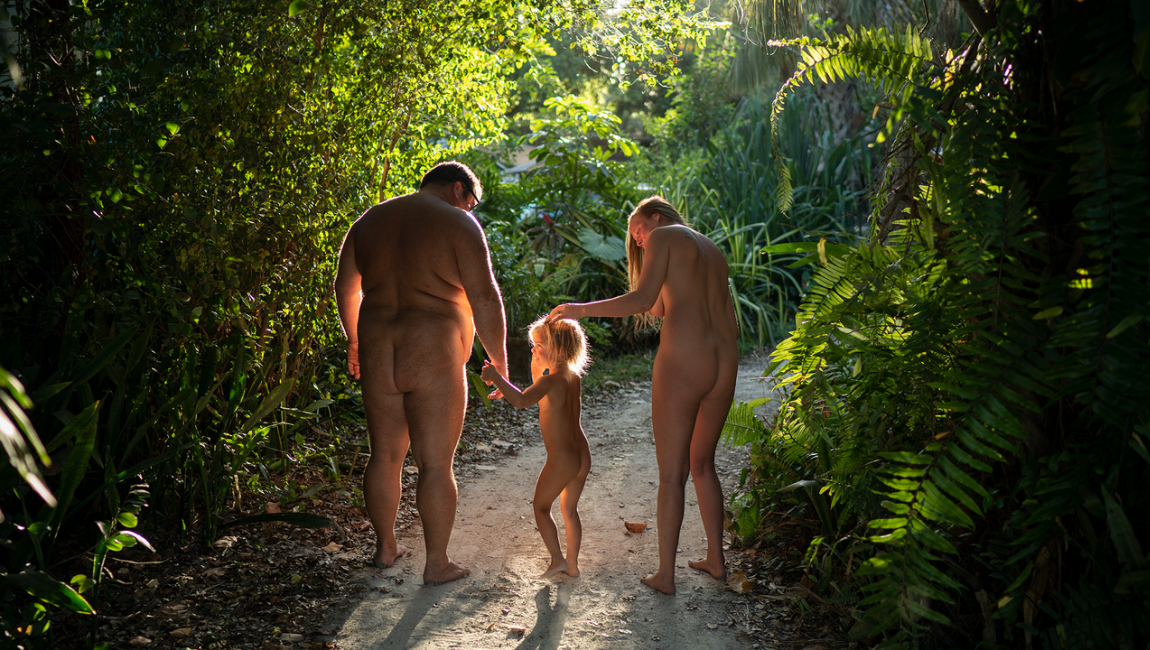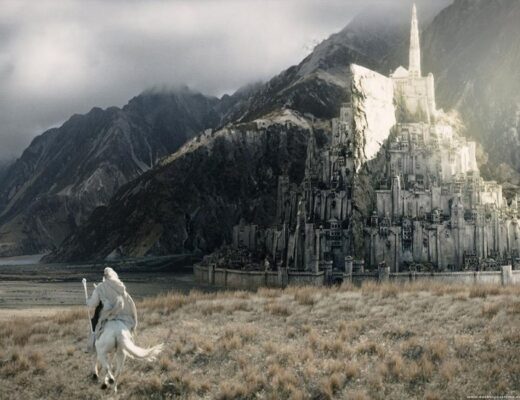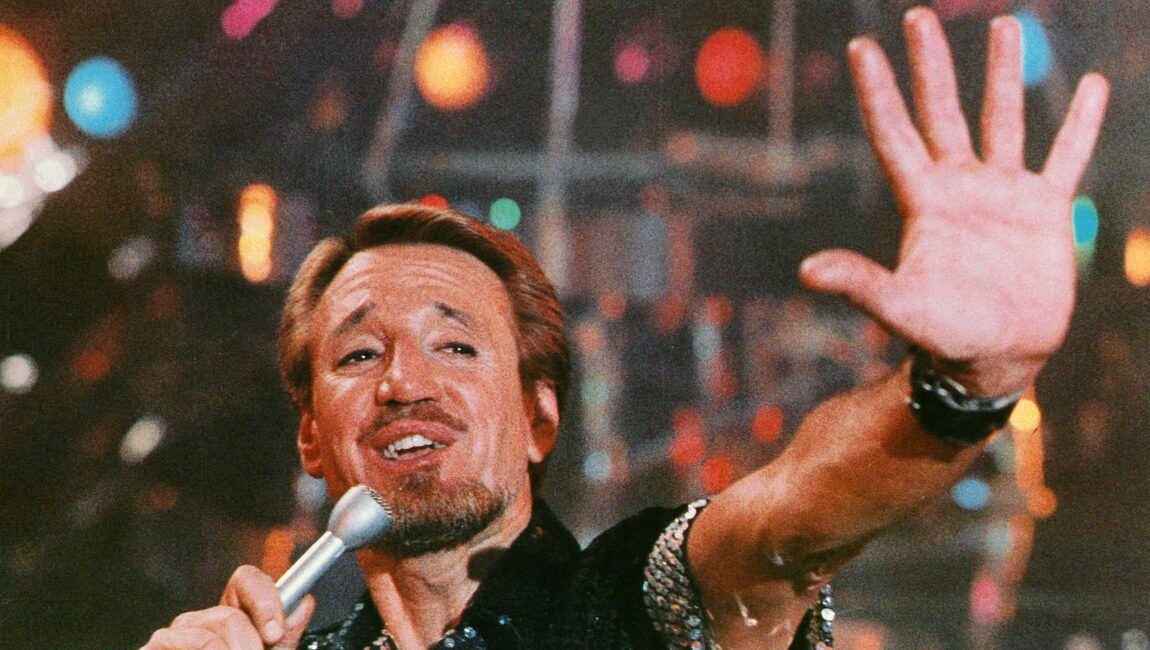Patrick Bresnan & Ivete Lucas’ documentaries have always gravitated toward the observational, content to let moments unfold in natural manners to reveal some truth about humanity. Their films have largely focused on everyday people: high schoolers, warehouse workers, and Floridians eager to view the airplane that transported Donald Trump. Their latest feature, Naked Gardens, follows a more unexpected group: nudists. Here at a resort in the Florida Everglades, Bresnan & Lucas are smart in their approach: specifically, to start broadly and depict the cozy atmosphere of the locale before then spotlighting a handful of people to showcase the variety of folks living here. The immediate shock of Naked Gardens is, of course, the nudity on screen, and the first fifteen minutes depict people in an alternation of anxiety-inducing and tender moments. Of the scenes that feel concerning: an older gentleman working out near weight plates, a group of people playing bocce ball, and someone using a power saw — it’s safe to say the average person would likely be worried about harming their genitalia in such situations. But between these moments are shots of someone relaxing on a lounge chair, a mother taking a shower with her child, and a woman giving her husband a haircut. Naked Gardens’ entire thesis is found here: these people are dedicated to their lifestyles, but at the end of the day, they’re not so different from the average, clothed person.
The problem with Bresnan & Lucas’s film, then, is that this “thesis” is as deep as the film goes. It’s hard to shake that these first few scenes could constitute a short film — one similar to the length of their previous works — and be sufficient. But as the film proceeds, ideas and themes are explored with frustrating shallowness. The reality is that there’s an upsetting paradox at play here, that in wanting to show how everyone in this film is actually very normal, Naked Gardens ends up being little more than a snapshot of ordinary people talking and going about everyday tasks, with the only difference being their nudity. Their nakedness is initially a bit of a shock — compared to the average film, these bodies are presented in an unsexual, matter-of-fact manner. But it’s only noteworthy for so long, as one grows accustomed to this particular reality within minutes and realizes that there are still other things they have to deal with — at one point, a woman comments on the fact that while people won’t judge you for your body, you’ll still be judged for your personality.
There’s some tension during a meeting wherein people discuss the future of the resort, and it’s suggested that rules are imposed to mandate nudity, or to ensure that the number of women and men who live here is more equal (there are more men). In one of the more illuminating moments, a woman discusses her past traumas and how they’ve led to her living in this place, and a man tries but fails to respond in either a meaningful or thoughtful manner. You see, this place isn’t so different from most communities. The film’s final passage is devoted to the Mid-Winter Naturist Festival, which is the largest gathering of nudists in the US, but there’s no drama or excitement in the lead-up despite obvious concerns about its success. The event itself is also rather benign: just a bunch of people taking photos or throwing paint on each other, all shot with little panache and capturing no celebratory or dynamic energy. If the primary difference between nudists and their clothed counterparts is something more internal, then Bresnan & Lucas do little to excavate that essential question, allowing people to briefly share their life stories without using the filmic medium to elevate such truths. Bresnan & Lucas’ approach to cinéma vérité is ultimately lazy, bereft of any imagination or creativity to instill their images with anything beyond banal pseudo-profundity.
Published as part of Tribeca Film Festival 2022 — Dispatch 2.







